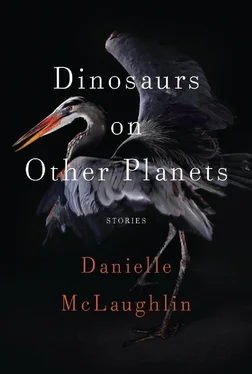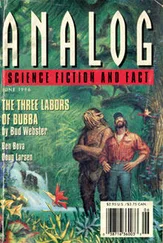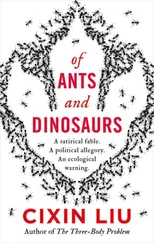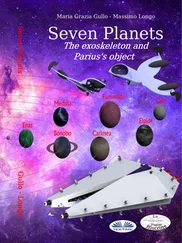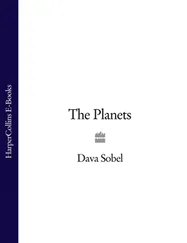“Do you think I’m some class of fool?” Kavanagh said.
The girl’s voice was soft, measured, as if calming a small child. “You’re no fool, Curly,” she said. “Come here and talk to me.” She patted the passenger seat of the forklift. Kavanagh looked away and shook his head. “I’ve enough time wasted,” he said, and began to walk toward the lorry.
The girl called after him. “Hey, Curly,” she said. “Don’t be like that.” Her voice dropped lower. “You can’t go yet. You haven’t seen the silver foxes.” She was leaning out of the forklift, her shadow stretching across the yard. “We brought them over from England last month. They’re still only cubs.” She was looking directly at Kavanagh, her head tilted slightly to one side, her lips parted. “Come down to the shed and I’ll show you. You’ve never seen foxes like these.”
Kavanagh had reached the door of the cab. He stopped, one foot on the step. In the forklift, the girl patted the passenger seat again and winked. Kavanagh appeared to be considering. Liddy was standing by himself, staring at the ground. For a while everything was very still, and there was only the sound of the wind rattling across the roofs of the mink sheds and the cry of a small animal in the trees beyond. Then Kavanagh strode across the yard to the forklift and climbed in. They drove off, the girl at the wheel, the wind whipping up her dark hair, Kavanagh bald and stocky in the seat beside her. The forklift went to the far end of the yard and disappeared behind some outbuildings.
Gerard and Liddy were left standing in the yard. Liddy looked like a man who had been struck. He did nothing for a moment, then turned and began his stooped walk back to the house. Gerard was about to go to the lorry and wait when Liddy shouted to him from the porch. “You might as well come in,” he said.
This time, instead of going into the sitting room, they continued down the hall and into a small wood-paneled kitchen. A table and two chairs were pushed tight against one wall, a stove, a sink, and an assortment of mismatched kitchen units against another. There was a wooden dresser stacked with old newspapers and chipped crockery. The stale grease of a fry hung in the air. To one side of the back door, in a glass display cabinet, was a stuffed brown mink. It was mounted on a marble base on which was inscribed something Gerard could not read. The mink stood on its hind legs, teeth bared in a rigid grin, front legs clawing the air.
Liddy took a bottle of whiskey from a cupboard beneath the sink and wiped two glasses on the end of his cardigan. He sat at the table and gestured at Gerard to sit beside him.
“She’s gone five years now,” Liddy said, pouring the whiskey. Gerard didn’t understand at first. He had been thinking of the girl behind the outbuildings with Kavanagh. The white breasts, the dark eyes. Her mouth, wide and loose; her red lips and a stud on her tongue that had flashed silver when she smiled at something earlier in the evening. Then he realized Liddy was staring at a photograph high on the wall above the dresser. It was of a woman, tall and angular, with straight brown hair, her hand resting on the shoulder of a girl in a Communion dress. “I’m sorry,” Gerard said, because he couldn’t think of anything else to say and it was what people had said when his mother died.
“Oh, I’m not sorry,” Liddy said, throwing back his whiskey and pouring another. “There’s a lot I’m sorry about, but not that.” His weariness had been replaced with anger. “She took herself off to Belfast. She told me she was going to stay with her sister, but you can be sure she had a man waiting. It was always the same with that woman: She’d tell you that day was night.” His head jutted forward and Gerard smelled the sourness of his breath. “I asked her to take the girl with her,” Liddy said, “but she wouldn’t.” He put down his glass and spread his hands wide, palms upward, in supplication. “What sort of life is it for a young girl out here, I asked her, but she left us to it, Rosie and myself.”
Rosie. The girl’s name didn’t suit her, Gerard thought. It was too tame, too domesticated. It was a name for a spoiled poodle in a wicker basket, not a girl with a tongue piercing who could drive a forklift. Liddy drank more whiskey. “Rosie was twelve when she left,” he said, “and what did I know about raising a child? A girl needs her mother. Boys are different. Boys can make their way, but girls need mothers.”
Liddy fell silent, swirled whiskey around the end of his glass. Gerard wanted to get up and leave but he knew that he could not. It was a moment before Liddy spoke again. “It was coming out here did it,” he said. “She was always a flighty woman. She had one eye on the door from the day I married her, but we got along well enough up to that. A couple of winters here and nothing could hold her.”
Liddy was becoming more and more agitated, his hands moving incessantly, almost knocking over his glass. Gerard’s own glass was barely touched. He thought of Kavanagh and the girl in the shadows of the outbuildings. He wondered if silver foxes were the same as ordinary foxes, only silver, or if they were some different creature entirely, and then he wondered if there were any silver foxes at all. He imagined the cubs in Kavanagh’s rough hands and Kavanagh, awed and silent, turning them this way and that.
“Her mother, bitch and all that she is, would make a better hand of her,” Liddy said. “Rosie’s a good girl, a fighter, but what chance has a girl out here?”
Gerard knew that he should say something but had no idea what.
“Rosie will be okay,” he said. “Rosie’s a smart girl.”
Liddy stared at him, his eyes bloodshot. All of the anger left him and he sagged over the table. “She is,” he said. “She’s a smart girl. And a good girl.”
He set his glass down on the table and buried his head in his arms. The kitchen was utterly quiet, nothing but the sound of the wind whistling under the back door. A strange sound came from Liddy, half cough, half sob. Then another that caught and lengthened until it became a wail. Liddy was crying, his shoulders quivering, the top of his head shaking. Gerard took a mouthful of whiskey, felt it burn the pit of his stomach. Liddy was bawling now, his head still in his arms. Gerard pushed his chair back and stood up. He went over to the sink and placed his glass on the draining board. He took one last look at Liddy crumpled over the table, then left the kitchen and went back down the narrow hall and outside to the yard.
When he got to the lorry, he discovered that Kavanagh had locked it and taken the key. The night had grown colder. Gerard remembered his jacket, still in the sitting room where he had left it earlier, but he thought of Liddy weeping inside the house and decided to do without. A light was on in a prefab, but the door, when he tried it, was padlocked. He took shelter instead beneath the overhang of the prefab’s roof, next to a row of barrels. He wrapped his arms around himself and hoped that Kavanagh would not be long. Something warm brushed against his legs, and he saw a cat dart from behind a barrel and streak across the yard.
He pressed his face against the prefab window. The walls were hung with pelts: thousands of headless, bodiless furs, their arms spread wide and pinned to wooden racks. On a bench was a machine with long silver-toothed blades and, beside it, a pile of dead mink. He noticed a smell coming from the barrel nearest him and lifted the lid. Inside were the skinned corpses of the mink, pink and slippery and hairless. He dropped the lid of the barrel and stepped back from the window.
The wind carried fragments of laughter up the yard and he saw Kavanagh and the girl returning on the forklift. This time Kavanagh was driving, the girl beside him, an arm flung across his shoulder. They slowed as they passed the pelt shed and waved. Gerard stepped out from the shelter of the building and walked behind the forklift to the lorry. A drizzle blew in from the mountains, stinging his face. Kavanagh, flushed and sweating, jumped out of the forklift. “Give us a hand,” he said to Gerard without looking at him, and together they began to unload the lorry. Gerard shivered in his shirtsleeves, but the cold, like the smell, didn’t seem to bother Kavanagh.
Читать дальше
